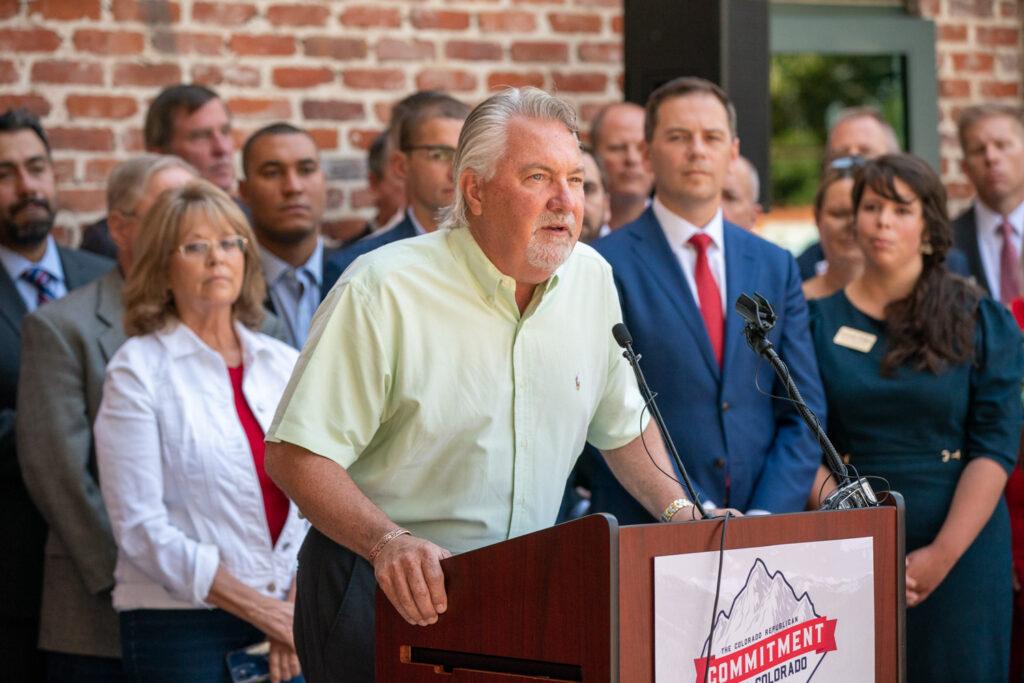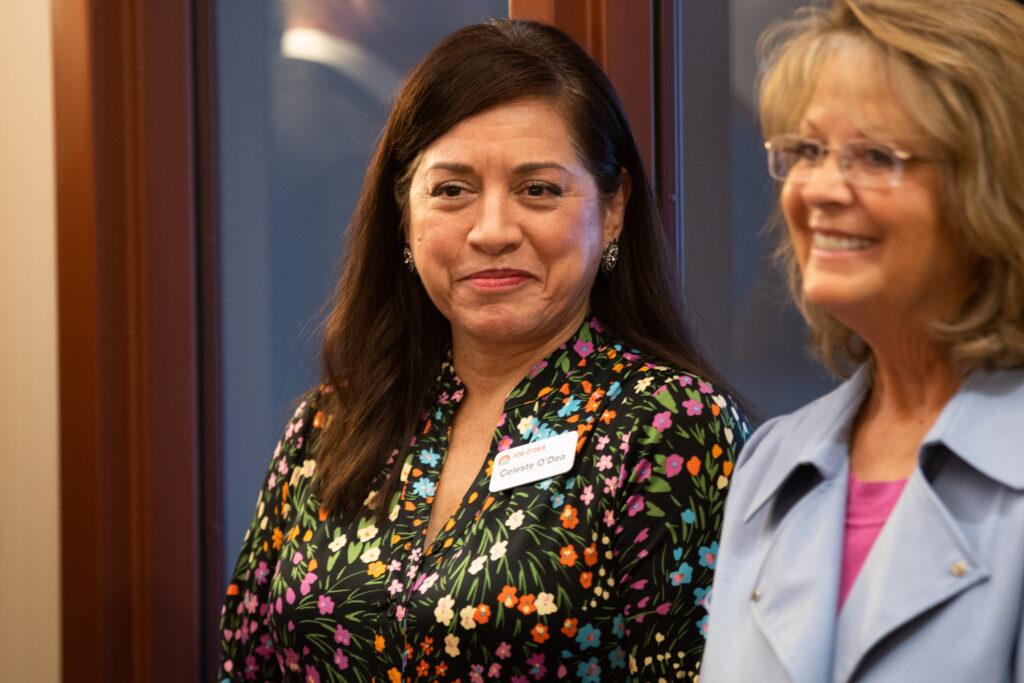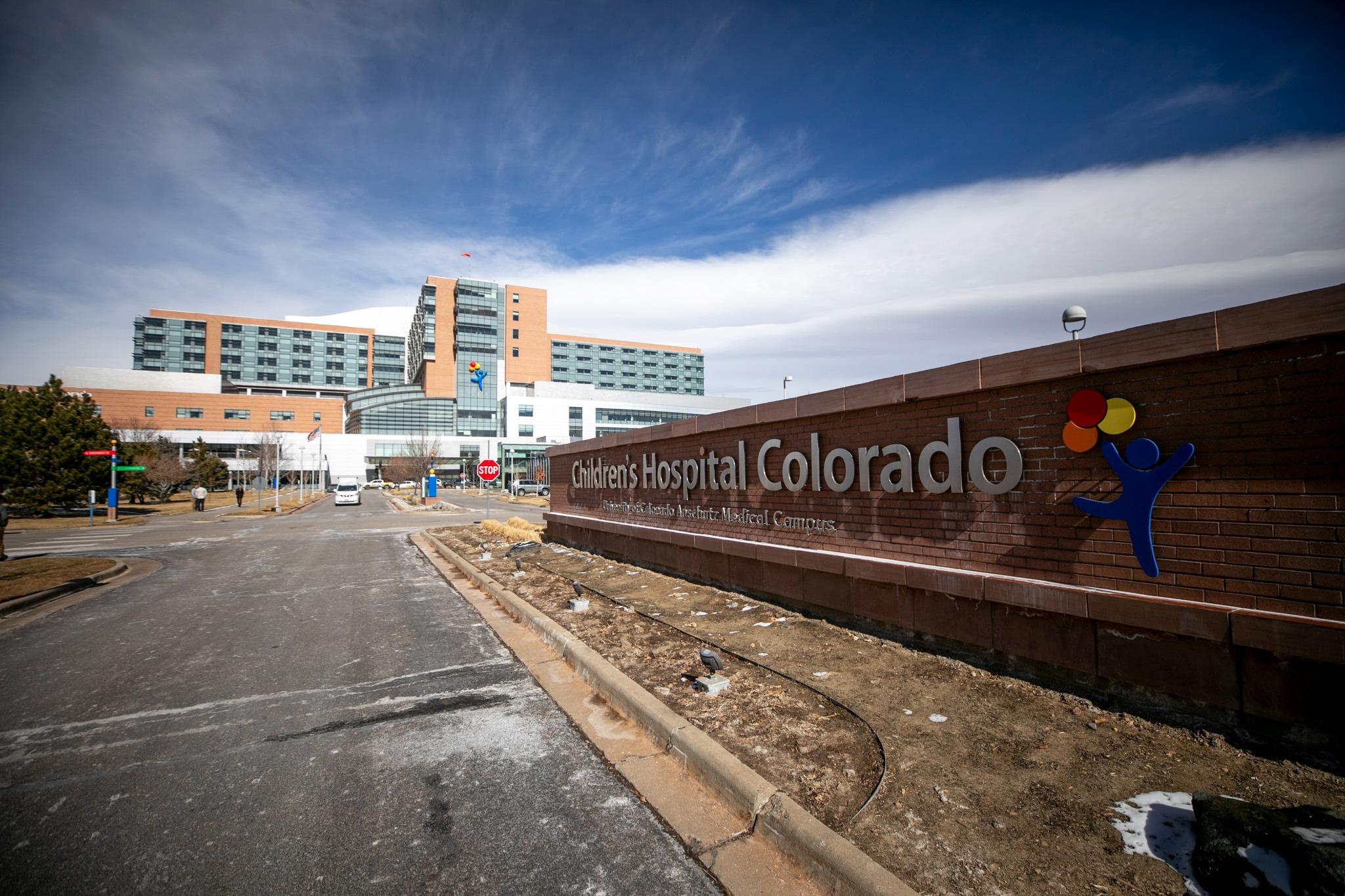
As a young child, Alan Muñoz Valenciano’s parents brought him to the United States from Mexico.
In the years since, he's been one of the lucky ones, able to live and work legally in the U.S. under the Deferred Action for Childhood Arrivals program, or DACA. But he's not optimistic about the program’s future.
“DACA's definitely dying and I think we'll be lucky to have another year of it,” he said. The program continues to be challenged in the courts and the issue is expected to once again be in front of the Supreme Court, now with a conservative bent.
Muñoz Valenciano sees the endless wrangling taking a toll on his community, and having a deeper impact on the nation’s politics.
“By being this political football that is just being tossed back and forth without really developing any sort of answer to the issues, people lose interest. People don't want to be engaged,” said Muñoz Valenciano, who works as regional manager of organizing programs for Voces Unidas Action Fund in Glenwood Springs.
He’s trying to get Latinos fired up to vote, as well as get members of Congress to prioritize DACA and immigration reform more broadly.
Pueblo community activist Sol Sandoval, who ran unsuccessfully for Congress, said a permanent solution for DACA recipients is always talked about and promised by politicians, but it has not resulted in action.
“Dreamers have been romanticized for such a long time. And it's something that people love to claim that they agree on, but we have not seen a clear path to immigration reform. We have not seen any permanent positive outcomes for Dreamers,” she explained.

How Michael Bennet and Joe O'Dea have different strategies for broad immigration reform
When it comes to Colorado’s Senate race, both Democratic incumbent Michael Bennet and Republican challenger Joe O’Dea have found some common ground on the issue. Both talk about the need to protect DACA recipients and move at long last on broader immigration reform.
But how they’re willing to get to that differs. Bennet said he’s open to multiple routes, either including DACA as part of a broader immigration reform bill, along with funding for high-tech border security, or protecting it through stand-alone legislation. O’Dea rules out that second option; he’s said DACA protections need to be part of a comprehensive bill, one that expands the border walls and reforms the immigration system.
On the campaign trail, O’Dea uses the experiences of some of the employees at his construction company to explain why he thinks the system as a whole needs to change.
“I've got guys that have worked for me for 15 years. They've been on different visas. They're here legally and they can't get through citizenship,” he told supporters in Pueblo. “That's ridiculous to me. That's just ridiculous. We can fix it all. I think I can get 60 votes on that.”

Immigration reform in Congress is hitting a 'brick wall' — again
But recent history shows that’s easier said than done. The last time immigration reform got more than 60 votes in the Senate was almost a decade ago. Bennet was part of the bipartisan group that wrote the 2013 immigration reform bill. While it passed the Senate with 68 votes the Republican-controlled House never brought it up for a vote.
“It hit a brick wall,” Bennet told a voter in Glenwood Springs, who asked why Congress hasn’t managed to find agreement.
That brick wall seems likely to be back in force in the next Congress. House Minority Leader Kevin McCarthy, said he's not interested in working on comprehensive immigration reform and would instead focus on border security if Republicans retake the chamber this fall.
First-time political candidate O'Dea dismisses that obstacle.
“I don't care what (McCarthy) says. I'm gonna go talk to him and I'm gonna say, ‘look, this makes great sense. If we're gonna do that, let's have a comprehensive bill that addresses the DACA kids. Let's get their citizenship taken care of. Let's make sure that we also fix our immigration system,’” he said.
Immigration activists don’t share O’Dea’s optimism when it comes to the issue.
“I would ask Joe, like, ‘who you think is gonna come to the table on this?’ I don't see him being able to get 10 Republicans to do that,” said Chris Davis, mobilization manager with CIRC Action Fund, the political arm of the Colorado Immigrant Rights Coalition. The Fund has endorsed Bennet. “I don't trust O’Dea when he talks about his positions on immigrant issues, largely because of his party affiliation.”

How both parties are making the pitch to Latino voters
Republicans have stepped up their overall pitch to Latino voters this cycle. O’Dea’s wife, Celeste O’Dea, attended the opening of an RNC Hispanic outreach center in Thornton; her grandparents immigrated to the United States from Mexico. And the Republicans’ Senate campaign arm has focused on Hispanic voters across several states, including Colorado, by making their pitch on issues such as the economy and border security.
Of the four Senate Republicans who worked on immigration reform in 2013, only Florida’s Marco Rubio and South Carolina’s Lindsey Graham remain in office. Rubio decided not to be part of another bipartisan group in 2018 that attempted to get an agreement on immigration reform. That effort, known as the Group of Six, included Bennet and Colorado GOP Sen. Cory Gardner, who lost his reelection bid two years ago.
Alex Sanchez, president and CEO of Voces Unidas Action Fund, which has also endorsed Bennet, is worried about the damage he sees the continuing stalemate over immigration doing to Latino political interest and engagement.
“When we don't see ourselves and our values reflected in any of the two dominant political platforms and systems, we tend not to vote,” he explained.
He thinks that’s the worst outcome. It’s also one that Sanchez, a Democrat, believes benefits Republicans, given that Latino voters historically have gone more for Democrats than Republicans.
But for some individual members of the GOP, the inaction on immigration is surprising and frustrating. Republican voter Don Click attended a Democratic Latino event in Glenwood Springs this summer to talk immigration reform with Bennet.
Click said he’s tired of the blame game that both parties play given that he sees plenty of blame to go around for not passing major immigration reform since Ronald Reagan.
“I think it'd be such an economic boom for us if we as a nation, if we embrace these people and bring 'em in and allow them to hold jobs and become an active member in our society,” he said.
Whether Bennet or O’Dea wins next week, the next senator from Colorado will be someone who supports immigration reform of some type. But the big question remains: will enough other members of the next Congress share that position for it to make a difference?







